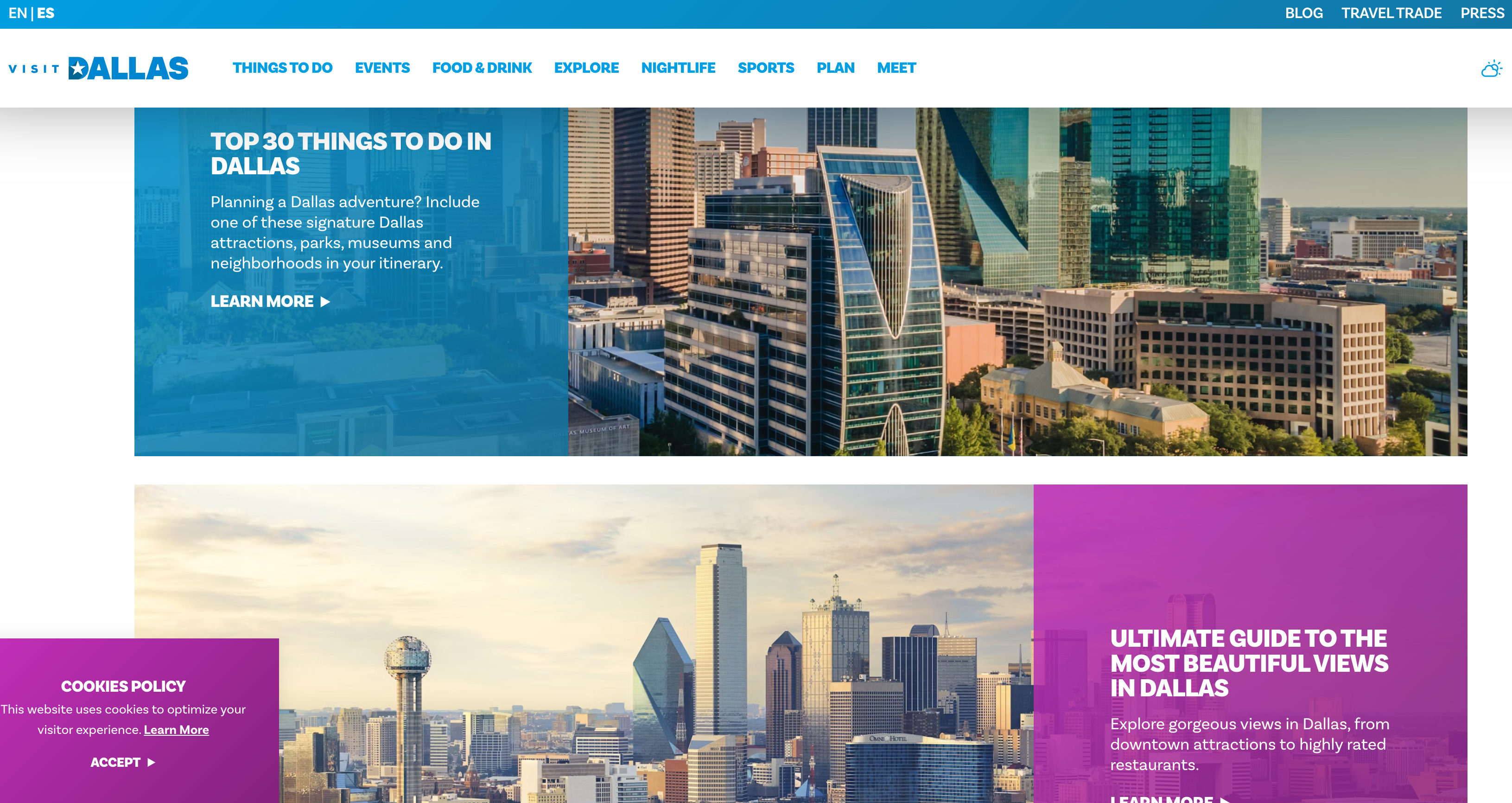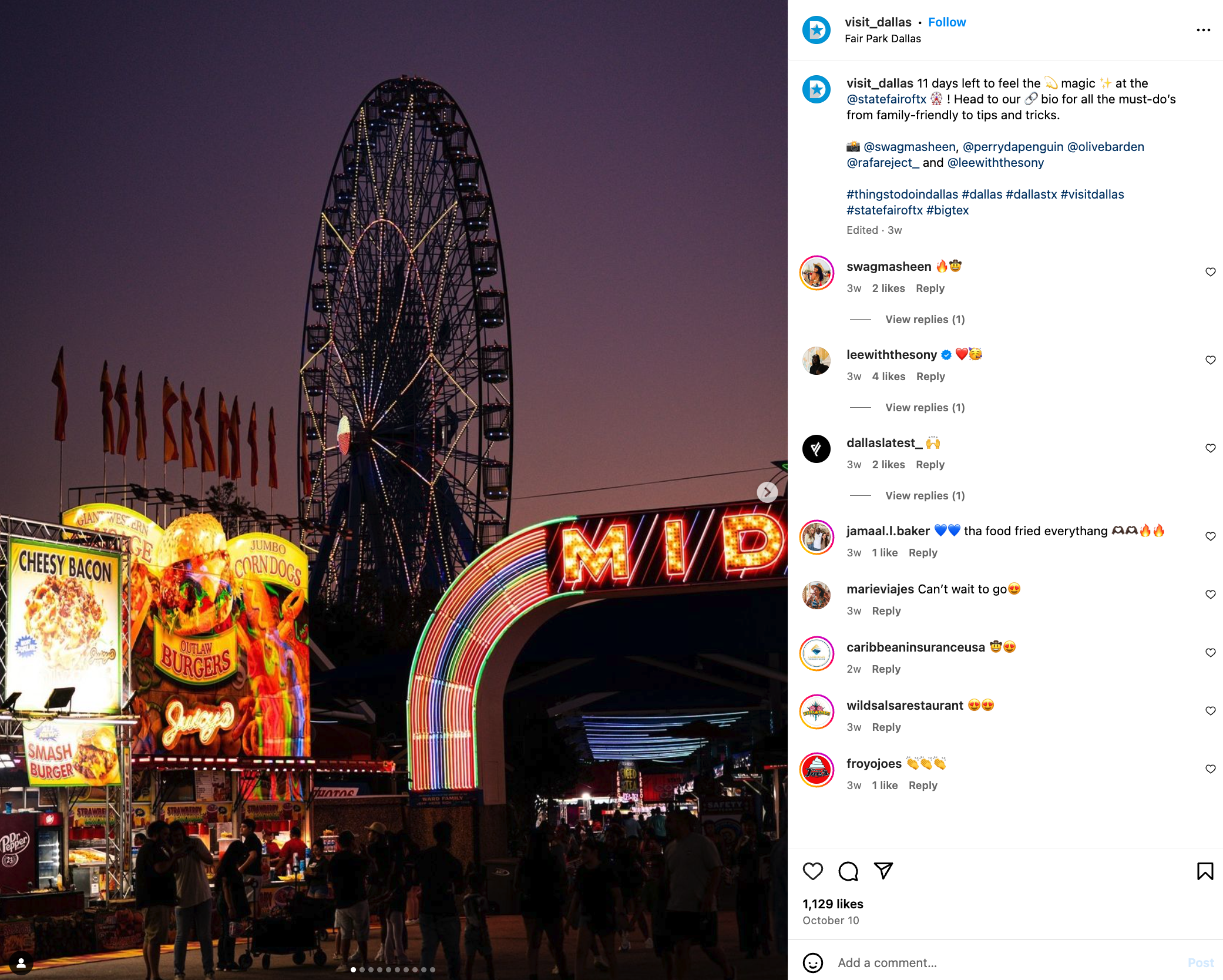
Creating content for your website is vital because it ensures ownership, control and consistency in your messaging while mitigating risks associated with changes on external platforms like social media. By prioritizing your website, you can build a stable foundation for your brand, integrate with other channels, and leverage first-party data to enhance marketing efforts and user experience.
Let's chat about digital marketing - and more specifically - the undervalued importance of creating content for channels you own. When organizations such as DMOs create their content strategy, a lot of time, effort and budget is easily spent on social media channels, and for good reason. Of the top 10 websites visited daily, 6 are social media sites.1 But as we've experienced recently with ownership changes at Twitter/X and governmental oversight into platforms like TikTok, the platforms that you don't control can directly change your brand's engagement overnight.
Ownership & Control of Content
When you create content specifically for your website, you own it. How that content is presented is completely in your hands. This ensures that your branding remains consistent and that how visitors experience and consume the content is exactly what you envision.
Unlike social media platforms, where algorithm changes and policy shifts can affect your reach and engagement, your website remains a stable and controlled environment. You're not 'penalized' if your content type, image vs. video, or even content delivery, portrait vs. landscape, isn't the top priority of the social platform this week.
This freedom allows you to tailor your content to meet your specific audience’s needs and preferences, enhancing the user experience and building a stronger brand identity.

Risks of Over-Reliance on External Platforms
If these last two years have taught us anything about social media platforms, it's that anything can change in an instant. The acquisition of Twitter by Elon Musk reminded us that these platforms are businesses with one goal - to drive revenue for their platform. They don’t exist to help your business.
Additionally, the concerns over data and privacy have led local, state and national governments to explore actions against social media platforms. In some instances this has led to regulations, restrictions or even bans on certain platforms. And let's not forget, platforms can lose popularity or even shut down, erasing years of content and engagement efforts with it.
By relying too heavily on these platforms, you risk losing your primary communication channels and the audience you’ve built there. For example, several brands experienced significant setbacks when Facebook changed its algorithm several times, including the 2018 change to prioritize personal posts over business content2 and the 2023 change that led to a dramatic decrease in traffic back to websites.3
These risks highlight the importance of having a stable, controlled channel like your website to ensure your message always reaches your audience.
Integration with Other Channels
This isn't to say "abandon all hope, ye who enter" for social media platforms. Your website content should support and enhance your overall content strategy, which social needs to be a part of. We all strive to create content that shares a cohesive brand message across all channels.
Each platform we engage on provides limited but valuable information on our target visitors. Together, however, we're able to piece the larger puzzle together. By leveraging social media, newsletters, paid campaigns and more to drive traffic back to your website, you create a space that you control and execute against that valuable visitor data.

Data, Data, Data
Prioritizing your website, and website content, also provides added opportunities for the capture of first-party data. This data can then be used to personalize the visitor experience through dynamic web content and recommendations and improve the targeting and segmentation of your marketing campaigns across all channels.
First-party data becomes even more crucial as third-party cookies continue to be phased out, making it increasingly more difficult to track visitors through traditional methods. Maximizing first-party data collection opportunities ensures your marketing efforts remain effective and compliant (your legal team will thank you), as privacy regulations continue to evolve.
In Conclusion...
Creating and maintaining content on your own website is essential for all organizations, DMOs included. It provides ownership and control, mitigates risks associated with external platforms, supports our other marketing channels and anchors a sustainable content strategy through first-party data. By focusing on your website, you ensure that your message reaches your audience, regardless of the ever-changing digital landscape.
1SemRush data via ExplodingTopics.com - https://explodingtopics.com/blog/most-visited-websites
2 NBC News - https://www.nbcnews.com/business/business-news/facebook-s-news-feed-changes-are-latest-blow-publishers-brands-n837196
3 Gizmodo - https://gizmodo.com/facebook-traffic-down-algorithm-change-1850549012
Share Your Expertise
Want Your Organization Featured Next?
The article you just read was written by someone like you. Submit a blog, case study or social media feature and get your organization's story in front of the DI community.
Join 50+ destination leaders who've shared their stories on the DI Blog


